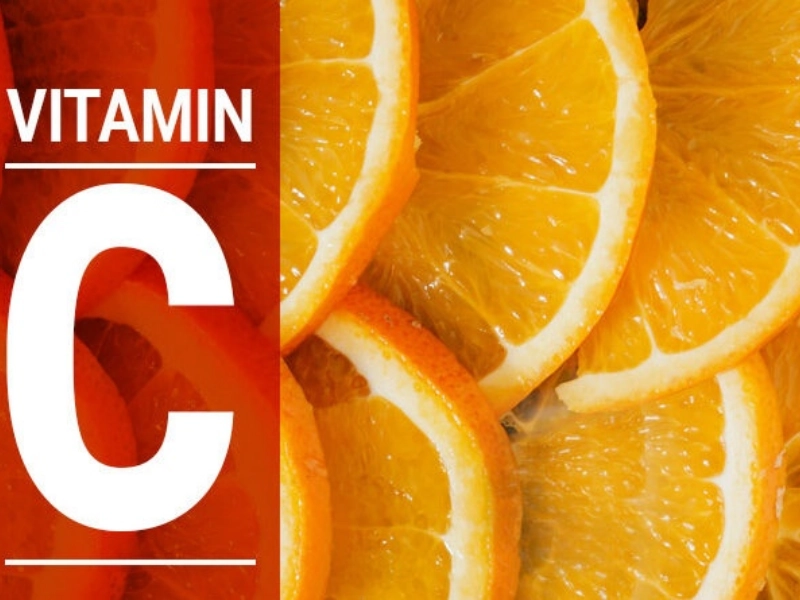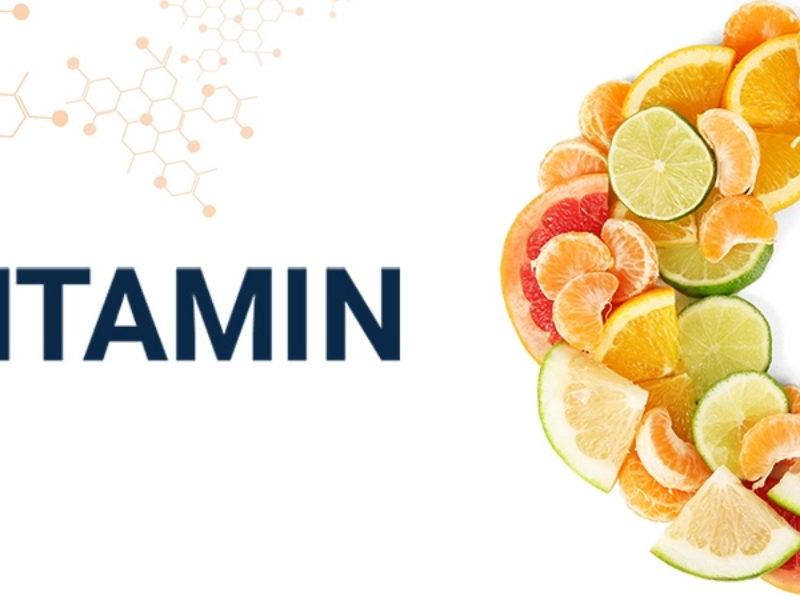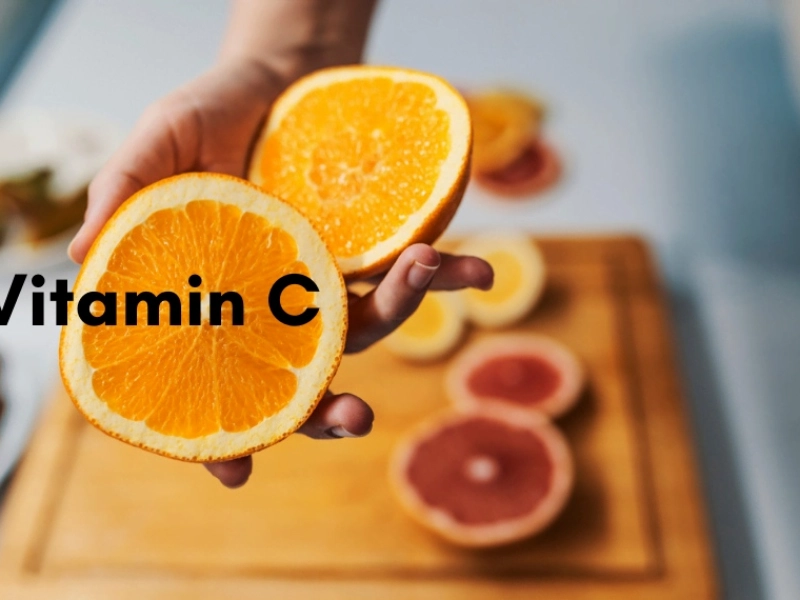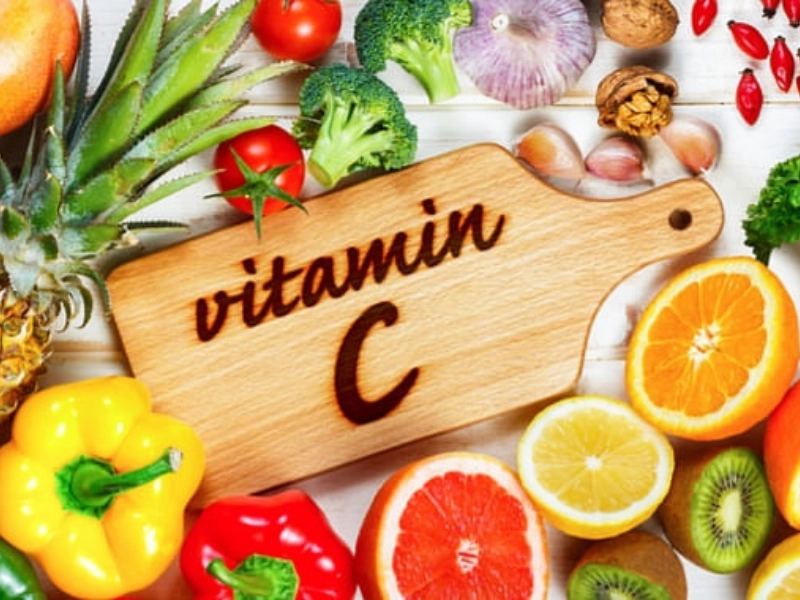The Role Of Vitamin C In Hormone Balance For Women
Many foods, such as berries, citrus fruits, and green vegetables, contain vitamin C. Ascorbic acid, also known as sodium ascorbate, is another form of it that is accessible as a supplement. Studies that have demonstrated its benefits for hormone balance have all employed this form of it. The majority of epidemiological and interventional investigations on vitamin C supplementation or ingestion have produced conflicting or no results at all. This could be as a result of artifact-prone assays used.
Vitamin C and the hormone oestrogen

Progesterone and vitamin C
 One of the two female sex hormones, progesterone aids in the development of a healthy uterine lining to support a developing foetus or embryo during pregnancy. Additionally, it helps the breasts expand during puberty and gets the body ready for nursing after birth. Progesterone levels normally rise during the menstrual cycle, and certain birth control pills may cause them to rise as well.
The body's main water-soluble antioxidant is vitamin C. It shields essential molecules from harm caused by free radicals or reactive oxygen species, including proteins, lipids (fats), carbohydrates, and nucleic acids (DNA and RNA). It also participates in the redox process that renews vitamin E and other significant antioxidants.
The majority of clinical intervention trial results have not demonstrated that vitamin C supplementation significantly lowers the risk of cardiovascular disease. The risk of mortality from all causes and cancer-specific causes was found to be inversely correlated with blood vitamin C concentrations in the EPIC-Norfolk cohort, a sizable population-based investigation.
One of the two female sex hormones, progesterone aids in the development of a healthy uterine lining to support a developing foetus or embryo during pregnancy. Additionally, it helps the breasts expand during puberty and gets the body ready for nursing after birth. Progesterone levels normally rise during the menstrual cycle, and certain birth control pills may cause them to rise as well.
The body's main water-soluble antioxidant is vitamin C. It shields essential molecules from harm caused by free radicals or reactive oxygen species, including proteins, lipids (fats), carbohydrates, and nucleic acids (DNA and RNA). It also participates in the redox process that renews vitamin E and other significant antioxidants.
The majority of clinical intervention trial results have not demonstrated that vitamin C supplementation significantly lowers the risk of cardiovascular disease. The risk of mortality from all causes and cancer-specific causes was found to be inversely correlated with blood vitamin C concentrations in the EPIC-Norfolk cohort, a sizable population-based investigation.
Thyroid and Vitamin C
 Although vitamin C is most commonly associated with strengthening the immune system, it also supports male libido. It has been demonstrated to raise testosterone levels, which may result in an increased desire.
This is because vitamin C is an antioxidant that increases libido by reducing oxidative damage to testicular cells and sperm. Furthermore, it improves blood flow to the testes and increases the generation of nitric oxide (NO).
Vitamin C also stimulates the secretion of luteinizing hormone (LH), which increases libido. The pituitary hormone called LH instructs the testicles to begin producing testosterone.
In one study, vitamin C treatment for male hyperglycaemic mice somewhat attenuated the decline in serum LH and testosterone levels, as well as the changes in testicular histology and sperm parameters. Furthermore, by decreasing malondialdehyde (MDA), raising nitric oxide (NO) levels, and improving total antioxidant capacity (TAC), it mitigated the oxidative stress caused by hyperglycemia.
Although vitamin C is most commonly associated with strengthening the immune system, it also supports male libido. It has been demonstrated to raise testosterone levels, which may result in an increased desire.
This is because vitamin C is an antioxidant that increases libido by reducing oxidative damage to testicular cells and sperm. Furthermore, it improves blood flow to the testes and increases the generation of nitric oxide (NO).
Vitamin C also stimulates the secretion of luteinizing hormone (LH), which increases libido. The pituitary hormone called LH instructs the testicles to begin producing testosterone.
In one study, vitamin C treatment for male hyperglycaemic mice somewhat attenuated the decline in serum LH and testosterone levels, as well as the changes in testicular histology and sperm parameters. Furthermore, by decreasing malondialdehyde (MDA), raising nitric oxide (NO) levels, and improving total antioxidant capacity (TAC), it mitigated the oxidative stress caused by hyperglycemia.
Thyroid and Vitamin C
 An important nutrient needed for endocrine activities is vitamin C. It is a crucial antioxidant that supports the synthesis and upkeep of thyroid hormones. It also enhances levothyroxine absorption and lessens oxidative stress.
Your chance of developing autoimmune thyroiditis and Graves' disease may rise if you are deficient in this nutrient. A deficiency in vitamin C may result in a goitre, or enlarged thyroid gland.
Research suggests that administering high-dose vitamin C therapy could alleviate symptoms related to autoimmune thyroiditis and Graves' disease. In individuals receiving propylthiouracil therapy for hyperthyroidism, it may also lessen oxidative stress.
Retinol, often known as vitamin A, is a crucial fat-soluble vitamin for reproduction and eyesight. Foods including sweet potatoes, squash, and carrots contain it. But a thyroid that is not functioning well cannot properly convert beta-carotene to vitamin A. Therefore, even if your diet is high in certain items, you may still be weak in this nutrient.
An important nutrient needed for endocrine activities is vitamin C. It is a crucial antioxidant that supports the synthesis and upkeep of thyroid hormones. It also enhances levothyroxine absorption and lessens oxidative stress.
Your chance of developing autoimmune thyroiditis and Graves' disease may rise if you are deficient in this nutrient. A deficiency in vitamin C may result in a goitre, or enlarged thyroid gland.
Research suggests that administering high-dose vitamin C therapy could alleviate symptoms related to autoimmune thyroiditis and Graves' disease. In individuals receiving propylthiouracil therapy for hyperthyroidism, it may also lessen oxidative stress.
Retinol, often known as vitamin A, is a crucial fat-soluble vitamin for reproduction and eyesight. Foods including sweet potatoes, squash, and carrots contain it. But a thyroid that is not functioning well cannot properly convert beta-carotene to vitamin A. Therefore, even if your diet is high in certain items, you may still be weak in this nutrient.









